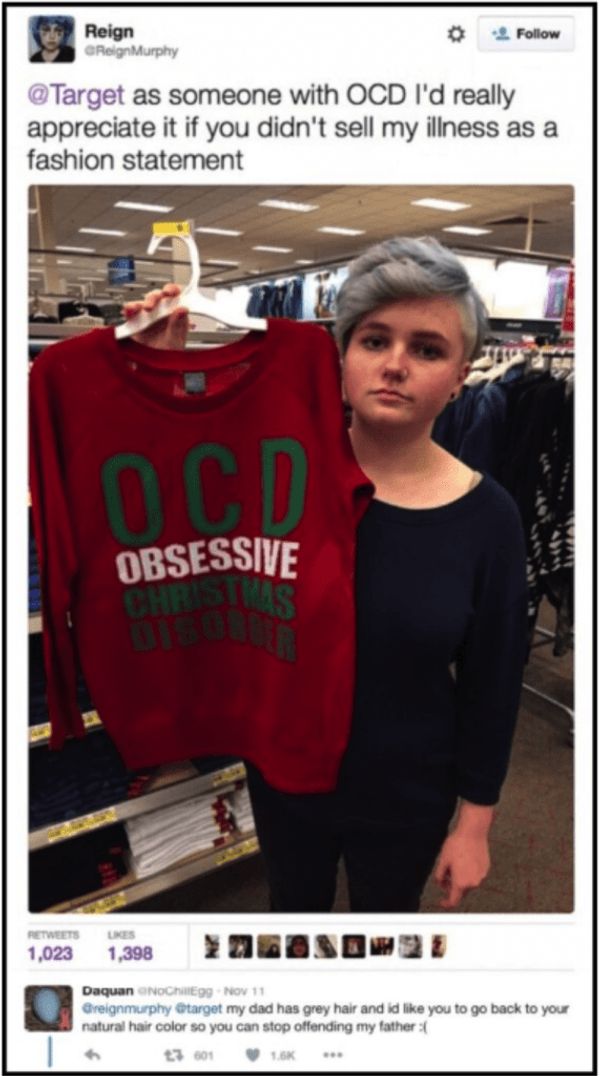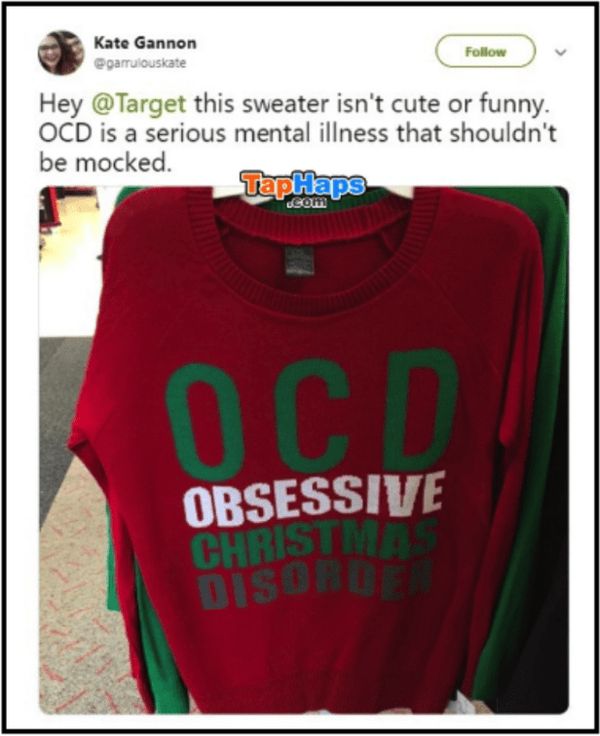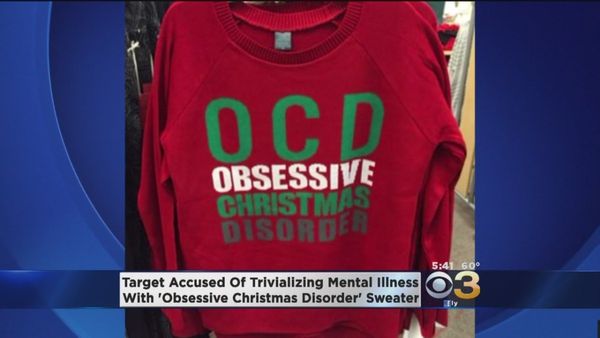In the ever-shifting landscape of sensitivities and perceptions, even seemingly innocuous items can fuel controversy and ignite discussions. A recent incident at Target involving a red sweater has brought to light the question of whether the offense caused was justified or blown out of proportion.
It was just another ordinary day for Reign Murphy, a regular customer at Target, when she happened upon a bright red sweater amidst the various items. As she lifted it up and read the text emblazoned across it, she was taken aback. “OCD Obsessive Christmas Disorder,” a playful spin on the abbreviation for obsessive-compulsive disorder, was boldly displayed on the sweater.

Reign, who had been dealing with this psychological condition affecting almost 2.2 million Americans, felt deeply offended by the message. She believed that such a term should not be used so casually, seemingly making light of a serious illness. It felt as though the sweater was mocking those struggling with OCD.
Taking to Twitter, Reign shared a picture of the sweater, expressing her concerns and dissatisfaction. Little did she know that her tweet would quickly go viral, garnering numerous shares and comments. Many people resonated with her sentiments, deeming the phrase on the sweater to be genuinely insulting. Trivializing a mental health issue in such a manner was seen as impolite and disrespectful.
Of course, there were also those who disagreed, arguing that the intent behind the lighthearted pun was not to offend or demean. Some individuals, even those with firsthand experience of OCD, did not perceive the playful phrase as a slight to the severity of the illness.
In response to the escalating controversy, Target representative Jessica Carlson offered apologies to anyone genuinely offended by the product. However, she also clarified that the store had no plans to discontinue selling the sweater.

Target has faced criticism in the past for the messages conveyed through its merchandise, and this incident is not an isolated case. Another woman had previously expressed concerns about designs she found offensive. These designs, including labels like “bride,” “trophy,” and “Mrs.,” were seen by some as reinforcing detrimental assumptions about women and their value.
This story serves as a valuable reminder of the delicate balancing act required in considering personal sensitivities and the intended message of a product. It highlights the blurred line between appropriate humor and unintentional offense. As our world continues to evolve, these conversations will persist, urging us to carefully weigh the consequences of our words and actions.
For a deeper insight into this tale, you can watch the following video. As always, feel free to share your thoughts with loved ones on Facebook, fostering understanding and open conversation.





